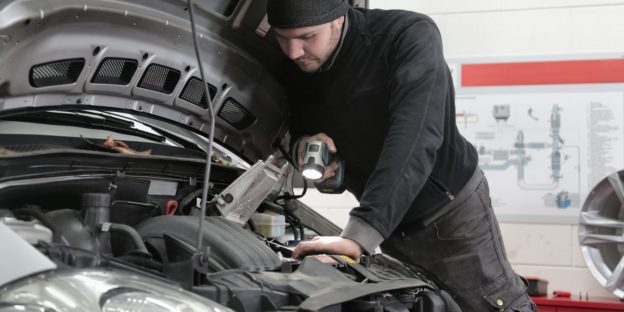A car’s title is a legal document that shows the business or person who owns the vehicle. Most vehicles on the market have a clean title, which means the car was never considered a total loss by an insurance company. However, some used vehicles for sale have a salvage or rebuilt title.
Let’s learn more about salvage and rebuilt titles, the differences between them and what to look for when shopping for used or repossessed vehicles.
What is a Salvage Title?
A salvage title is a title for a car that was involved in a major accident and deemed a total loss by an insurance company. Because these vehicles can’t be driven on the road, they appeal to mechanics who plan to rebuild them. Once the work is done, the car will need to pass a state inspection.
Be aware that every state has different laws about what constitutes a salvage title. For more information about salvage titles in your state, visit your local DMV.
What is a Rebuilt Title?
A rebuilt title was once a salvage title, but the vehicle was repaired and can now be driven on the road. For a vehicle to go from salvage to rebuilt status, it needs to be repaired, pass a state inspection and deemed fully functional.
A car with a rebuilt title costs less than a car with a clean title because there was an accident and extensive damage at one point. But because the vehicle is now safe to drive, you can immediately register the car, put plates on it and get auto insurance.
Should You Buy a Car with a Rebuilt Title?
Buying a car with a rebuilt title is not a bad idea. You can save significant money, though be aware that the car will be worth less. But, it’s possible that the vehicle was repaired to the highest standards, so you can get a reliable, safe vehicle for a fraction of the price.
Also, cars with rebuilt titles are ready to register, insure and drive right away. However, it’s important to know that you may not be able to get full coverage with a rebuilt title. Get several quotes from different insurance companies to compare rates, and be honest about the title.
And as always, we recommend having a full inspection when purchasing any used vehicle, particularly one that has been rebuilt. You want to be sure that nothing was missed during the original repair and inspection.



